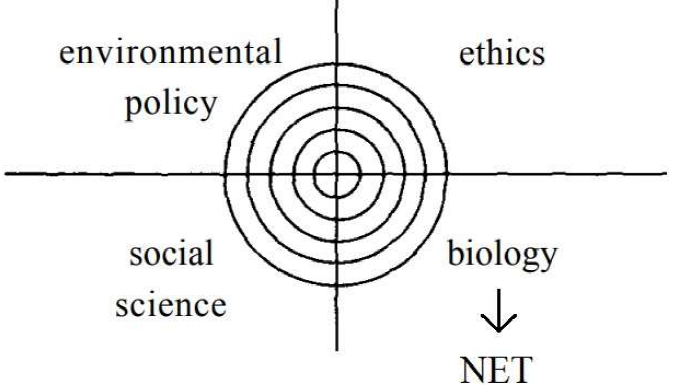
Asia Pacific Academy of Science Pte. Ltd. (APACSCI) specializes in international journal publishing. APACSCI adopts the open access publishing model and provides an important communication bridge for academic groups whose interest fields include engineering, technology, medicine, computer, mathematics, agriculture and forestry, and environment.

Environmental justice in law school curricula and the Hong Kong context
Vol 5, Issue 2, 2025
Download PDF
Abstract
Climate change poses an existential threat, disproportionately impacting marginalized communities. This article explores integrating environmental justice principles into Hong Kong legal education to empower future lawyers in combating the climate crisis. It highlights the importance of interdisciplinary approaches, experiential learning opportunities, and policy advocacy training. Case studies illustrate successful legal interventions and grassroots support strategies. The article emphasizes the evolution of professional ethics, balancing client interests with societal responsibilities. It proposes curriculum designs that incorporate real-world case studies, clinical experiences, and skill development in areas like legal drafting and climate litigation. By equipping Hong Kong law students with environmental justice perspectives, legal education can cultivate a generation of climate-conscious lawyers, driving transformative change towards a more equitable and sustainable future.
Keywords
References
1. Net Zero Lawyers Alliance. About Us. Available online: https://www.netzerolawyers.com/about-us (accessed on 2 December 2024).
2. Environment and Ecology Bureau, Hong Kong Special Administrative Region Government, Hong Kong’s Climate Action Plan 2030+ (Environment and Ecology Bureau, HKSAR Government, 2017). Available online: https://cnsd.gov.hk/wp-content/uploads/pdf/HK_Climate_Action_Plan_2030+_booklet_En.pdf (accessed on 2 June 2025).
3. The Law Society of Hong Kong. Annual Report 2024: Reforming for Sustainability. The Law Society of Hong Kong; 2024.
4. Schlosberg D, Collins LB. From Environmental to Climate Justice: Climate Change and the Discourse of Environmental Justice. WIREs Climate Change. 2014; 5(3): 359–374.
5. White R. Environmental Harm: An Eco-Justice Perspective. Policy Press; 201.
6. Nardone M, Oscars ED. Incorporating Environmental Justice into Environmental Law School Curricula. West Virginia Law Review. 2018; 121(2): 801–832.
7. Guevara-Herrero I, Bravo-Torija B, Pérez-Martin JM. Educational Practice in Education for Environmental Justice: A Systematic Review of the Literature. Sustainability. 2024; 16(7): 2805. doi: 10.3390/su16072805
8. Li VOK, Han Y, Lam JCK, et al. Air pollution and environmental injustice: Are the socially deprived exposed to more PM2.5 pollution in Hong Kong? Environmental Science & Policy. 2018; 80: 53–61. doi: 10.1016/j.envsci.2017.10.014
9. Schlosberg D. Defining Environmental Justice: Theories, Movements, and Nature. Oxford University Press; 2007.
10. Standing Committee on Legal Education and Training. Comprehensive Review of Legal Education and Training in Hong Kong: Consultation Responses. Standing Committee on Legal Education and Training; 2018.
11. Standing Committee on Legal Education and Training. Annual Report 2023. Standing Committee on Legal Education and Training; 2023.
12. Hills P, Barron W. Hong Kong: The challenge of sustainability. Land Use Policy. 1997; 14(1): 41–53.
13. Marmot M, Woo LF, Yeoh EK, et al. The environment and health inequalities in Hong Kong. UCL Institute of Health Equity; 2024.
14. Shah S, Paul H, Tan C. Law School and the Climate Crisis: Workshop and Steps Forward. University of Warwick School of Law; 2021.
15. SOAS University of London. NLUD-SOAS Joint LLM/MA in Environmental Justice in South Asia. Available online: https://www.soas.ac.uk/study/find-course/nlud-soas-joint-llm-ma-environmental-justice-south-asia (accessed on 14 March 2025).
16. United Nations Human Rights Council. Human Rights and Climate Change. Resolution 10/4, 25 March 2009. Available online: https://www.ohchr.org/en/climate-change/human-rights-council-resolutions-human-rights-and-climate-change (accessed on 2 December 2024).
17. Preston BJ. Climate Conscious Lawyering. Australian Law Journal. 2021; 95: 51–66.
18. United Nations. Guiding Principles on Business & Human Rights. U.N. Doc. A/HRC/17/31; 2011.
19. International Bar Association. Climate Crisis Statement. Available online: https://www.ibanet.org/document?id=822C1967-F851-4819-8200-2FE298164922 (accessed on 2 December 2024).
20. Legal Services Act, 2007, c. 29, s. 1(1) (UK). Available online: https://www.legislation.gov.uk/ukpga/2007/29/contents (accessed on 2 December 2024).
21. The Law Society. Corporate Strategy 2022/2025. Available online: https://www.lawsociety.org.uk/about-us/our-strategy-and-business-plan (accessed on 2 December 2024).
22. The Law Society. Creating a Climate-Conscious Approach to Legal Practice. Available online: https://www.lawsociety.org.uk/topics/climate-change/creating-a-climate-conscious-approach-to-legal-practice (accessed on 2 December 2024).
23. The Chancery Lane Project. Clauses. Available online: https://chancerylaneproject.org/clauses/ (accessed on 7 August 2024).
24. Vaughan S. Climate Change and the Rule of Law(yers): What Thinner and Thicker Accounts Might Require of Those in Practice. UCL Research Paper Series. 2022; 11.
25. Ramos J. Shifting the Mindset of Commercial Lawyers to Rewire Contracts, to Mitigate Climate Change More Effectively in Practice: The Chancery Lane Project. Environmental Law Review. 2021; 23: 3.
26. Peel J, Osofsky H, Foerster A. Shaping the Next Generation of Climate Change Litigation in Australia. Melbourne University Law Review. 2017; 41(2): 793–844.
27. Young MA. Climate Change and Law: A Global Challenge for Legal Education. University of Queensland Law Journal. 2021; 40(3): 351–370.
28. IUCN World Commission on Environmental Law. IUCN World Declaration on the Environmental Rule of Law. IUCN; 2017.
29. Bouwer K, John E, Luke O, Rozhan A. Climate Change Isn’t Optional: Climate Change in the Core Law Curriculum. Legal Studies. 2023; 43(2): 240–258.
30. Conrad K. The Era of Climate Change Medicine—Challenges to Health Care Systems. Ochsner Journal. 2023; 23(1): 7–8.
31. Sullivan JK, Lowe KE, Gordon IO, et al. Climate Change and Medical Education: An Integrative Model. Academic Medicine. 2022; 97(2): 188–192.
32. The Chinese University of Hong Kong, ‘Striving for Climate Justice for the Underprivileged: Mitigating Extreme Weather with Urban Design and Elderly Support’ (CUHK SD Matters, undated). Available online: https://sdmatters.cuhk.edu.hk/striving-for-climate-justice-for-the-underprivileged-mitigating-extreme-weather-with-urban-design-and-elderly-support/ (accessed on 25 May 2025).
33. Law Students for Climate Accountability. The Carbon Circle: The UK Legal Industry’s Ties to Fossil Fuel Companies. Law Firm Climate Change Scorecard. 2023.
34. Bogojević S. Legal Dilemmas of Climate Action. Journal of Environmental Law. 2023; 35(1): 1–9. doi: 10.1093/jel/eqa0007
35. Holmes V. Ethical Lawyering in the Anthropocene. Legal Ethics. 2023; 26(2): 201–218.
36. Solicitors Regulation Authority. Standards and Regulations. Available online: https://www.sra.org.uk/solicitors/standards-regulations/ (accessed on 10 July 2025)
37. Vaughan S. Existential Ethics: Thinking Hard About Lawyer Responsibility for Clients’ Environmental Harms. Current Legal Problems. 2023; 76(1): 1–34. doi: 10.1093/clp/cuad005
38. Law Students for Climate Accountability. Fueling the Climate Crisis: Measuring T-20 Law School Participation in the Fossil Fuel Lawyers Pipeline. Available online: https://www.ls4ca.org/fossil-fuel-lawyers (accessed on 27 April 2024).
39. Hunter D. Advised Emissions—Assessing the Impact. Law Gazette. Available online: https://www.lawgazette.co.uk/practice-points/advised-emissions-assessing-the-impact/5115871.article (accessed on 2 December 2024).
Supporting Agencies
Copyright (c) 2025 Author(s)
License URL: https://creativecommons.org/licenses/by/4.0/

This site is licensed under a Creative Commons Attribution 4.0 International License (CC BY 4.0).

University of Lapland, Finland

Yaroslav Mudryi National Law University, Ukraine
-
-
-
EBSCO
-
HEINONLINE
-
Crossref
-
Publons
-
ROAD
-
WorldCat
-
J-Gate
-
Scilit
-
EuroPub
-
SSRN
-
Index of Copernicus
-
CiteFactor
-
Dimensions
-
DRJI
-
Zenodo
-
TrendMD
-
OpenAIRE
-
-

